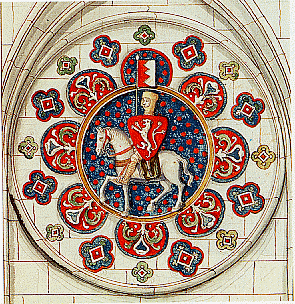Simon de Montfort was a French nobleman who became an important figure in English politics during the 13th century. He led the opposition against King Henry III and established a parliament, which included commoners, for the first time. In 1265, he defeated the King’s army at the Battle of Lewes and became the de facto ruler of England. He was eventually defeated and killed at the Battle of Evesham in 1265. Despite his short reign, Simon de Montfort is remembered as an important figure in English history, who fought for the rights of the common people and paved the way for parliamentary democracy.

The Second Barons’ War, also known as the Second Civil War, was a significant event in English history that took place in the mid-13th century. The conflict was primarily fought between King Henry III and a group of rebellious barons, led by Simon de Montfort, the Earl of Leicester. The war lasted from 1264 to 1267 and had significant long-term implications for the English monarchy, the balance of power between the nobility and the monarchy, and the role of parliament in English politics.
The conflict was rooted in the longstanding power struggle between the English monarchy and the nobility. King Henry III, who had ascended to the throne in 1216 at the age of nine, faced a series of challenges during his reign. He was often seen as weak and indecisive, which led to a growing sense of dissatisfaction among the nobility who sought greater influence in the government.
Additionally, Henry III faced significant financial difficulties during his reign. His father, King John, had left the English treasury depleted, and Henry III was forced to levy heavy taxes to fund his various projects, including his military campaigns in France. The heavy taxation and the king’s perceived mismanagement of funds created further tensions between the monarchy and the nobility.
In 1258, a group of barons led by Simon de Montfort, the Earl of Leicester, formed an alliance to address these issues. They created a document known as the Provisions of Oxford, which aimed to limit the king’s powers and create a system of checks and balances in the government. The provisions established a council of 24 barons who would have significant control over the government, including the power to veto royal decisions and to appoint key officials.
Henry III initially agreed to the provisions but later reneged on his promises, sparking a rebellion among the barons. The rebels, led by de Montfort, took control of London and other key cities, forcing Henry III to flee to France. De Montfort established a new government, known as the Provisions of Westminster, which aimed to further limit the king’s powers and to create a more representative government.
The war officially began in 1264 when Henry III’s forces, led by his son Prince Edward, defeated de Montfort’s army at the Battle of Lewes. The king was taken prisoner, and de Montfort effectively took control of the government, ruling through a council of barons.
Under de Montfort’s rule, the government became more representative, with greater representation for the nobility and the commons. He also introduced the concept of parliamentary representation, with elected representatives from each county and borough. However, de Montfort’s rule was not without controversy. He was seen as dictatorial by some and was accused of persecuting the king’s supporters.
In 1265, Prince Edward escaped from captivity and raised an army to challenge de Montfort’s rule. The two sides met at the Battle of Evesham, where de Montfort was killed, and his forces were defeated. The victory marked the end of the rebellion, and Prince Edward was able to regain control of the government.
Impact of the War:
The Second Barons’ War had significant long-term implications for English politics and government. While the rebellion was ultimately unsuccessful, it paved the way for greater representation in government and established the precedent of parliamentary representation. De Montfort’s creation of a representative government set the stage for the eventual establishment of a constitutional monarchy, where the monarch’s power would be limited by the elected representatives of the people.
Additionally, the conflict led to a redefinition of the relationship between the monarchy and the nobility. The Provisions of Westminster, while ultimately unsuccessful, represented a significant challenge to the traditional power structure of England.